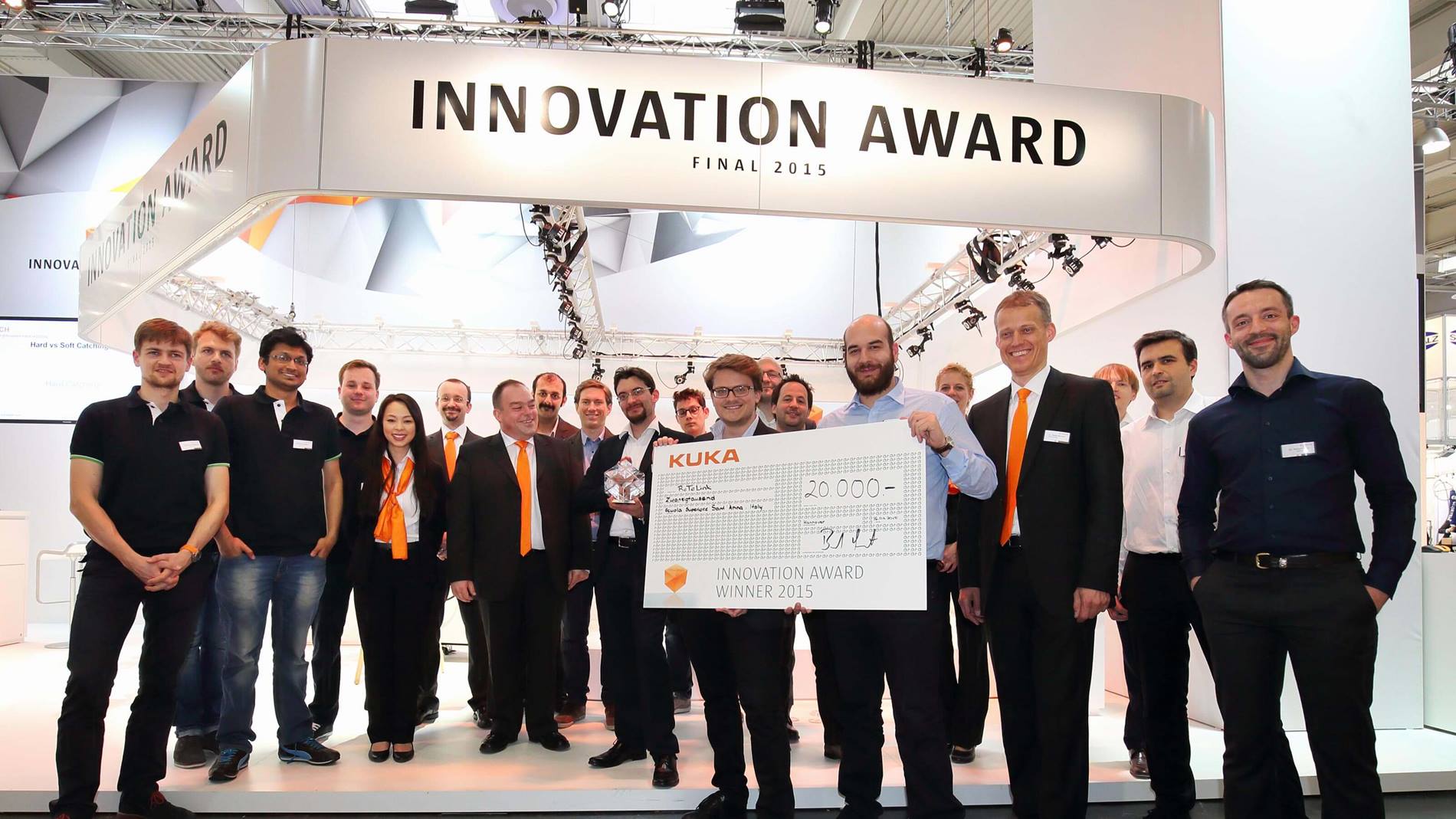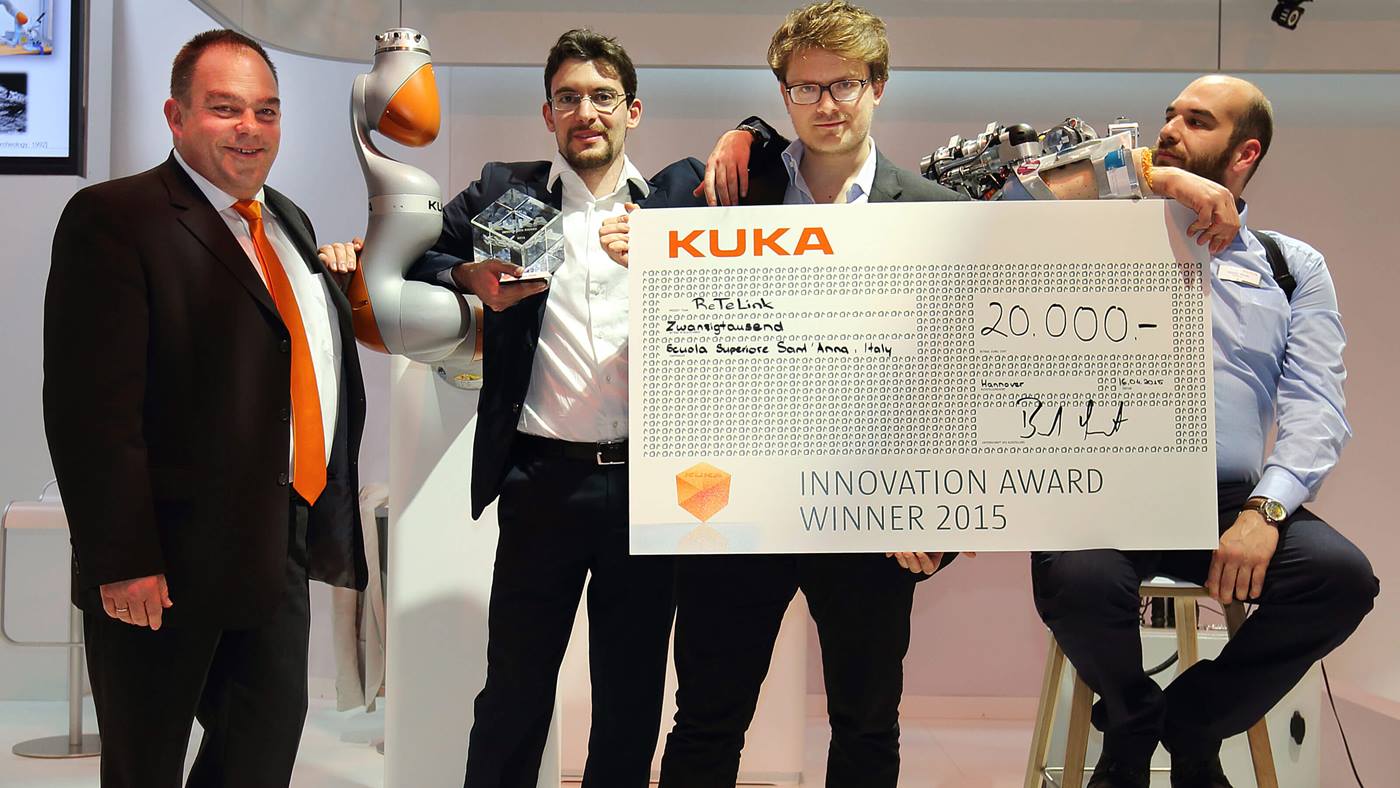Human-robot collaboration: exoskeleton communicates with the LBR iiwa
During the competition for the Innovation Award 2015, the winning team created a way to tele-operate a robot that is improved, more natural and more intuitive. “ReTeLINK” does what conventional haptic devices achieve through virtual reality. However, the application also connects two real physical systems with their own inertia, compliance and impedance. As a result, both robots (the exoskeleton and the LBR iiwa) use compliance features inspired by nature for safe interaction with an unstructured environment.
The two robots can even trade roles – for example, in order for a person to be entrusted with control of the LBR iiwa. This enables a remote object wearing the exoskeleton to initiate movements. This innovative form of human-robot collaboration offers enormous potential for clinical tele-rehabilitation. Beyond this, ReTeLINK is an interesting tool for advanced neuro-biomechanical studies in the field of human motor sensory systems.



